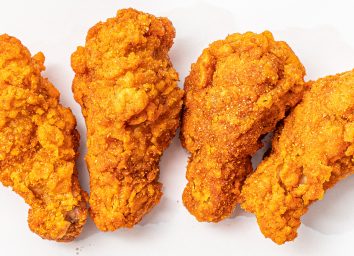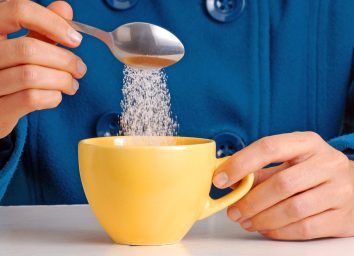Popular Foods You’re Eating Way Too Much Of, According to Dietitians
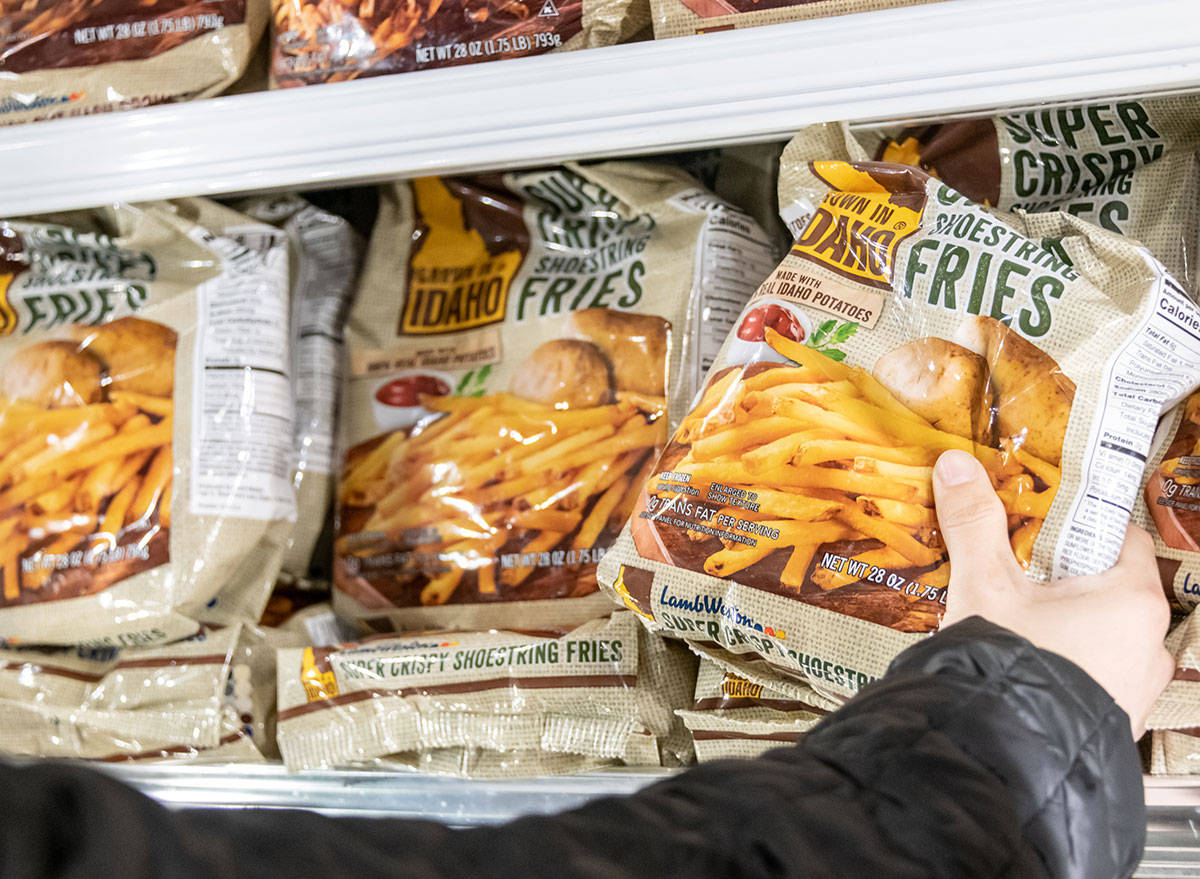
Yes, unfortunately, you can have too much of a good thing. While many dietitians will tell you that you should include all the foods you love in your diet and never restrict yourself (given that restrictive dieting doesn’t actually work), it’s important to eat everything in moderation. And yet, while we all know that eating foods in moderation is the key to overall health success, it can be easy to overdo it on some of these popular foods—even healthy ones!
We turned to a few dietitians and asked: what are some popular foods people regularly overdo it on? While the elimination of these foods was never recommended, these dietitians did say to watch out when eating some of these foods so you don’t overdo it and reverse all of the healthy goals you set for yourself. So here are some of the popular foods you may be eating way too much of, and if you’re in the market for some healthier meals, check out our list of 100 Easiest Recipes You Can Make.
Refined carbs
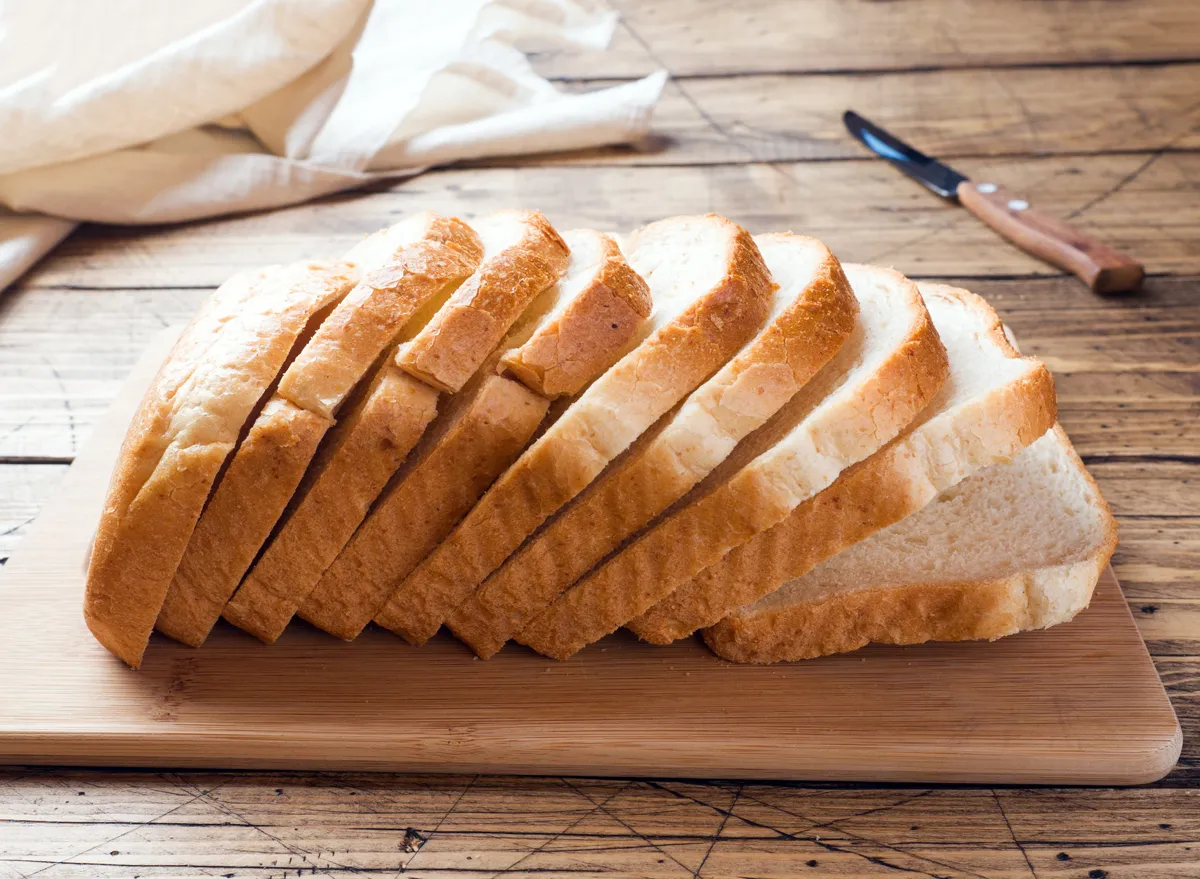
“The average person eats too much refined bread (including white bread, bagels, rolls, and crackers),” says Lisa Young, PhD, RDN, author of Finally Full, Finally Slim. “In fact, bread is one of the major contributors of calories in Americans’ diets.”
Instead, swap out those refined breads with one of these 9 Best Complex Carbs for Weight Loss.
Sugary beverages

“This includes sodas, energy drinks, lattes, iced coffees, teas, and even smoothies,” says Megan Byrd, RD, from The Oregon Dietitian. “Beverages like these are usually full of refined sugars that can cause bloating, weight gain, and increased risk for diabetes and heart disease. The sugar and calories found in beverages do not trigger our bodies to tell us that we’re full or that we’ve had enough calories, so we end up over-consuming sugars and calories and still feeling hungry!”
“By cutting back on the sugars you consume in your beverages, you will likely see a drop in weight and an increase in your energy level,” says Byrd. “Try using natural, calorie-free sweeteners in your tea and coffee, like stevia or monk fruit. Or make your own smoothies at home with healthier ingredients that will keep you full longer and give you more energy throughout the day!”
Before blending up your smoothie, be sure to read up on these 7 Ways Smoothies Will Make You Gain Weight.
Rice cakes
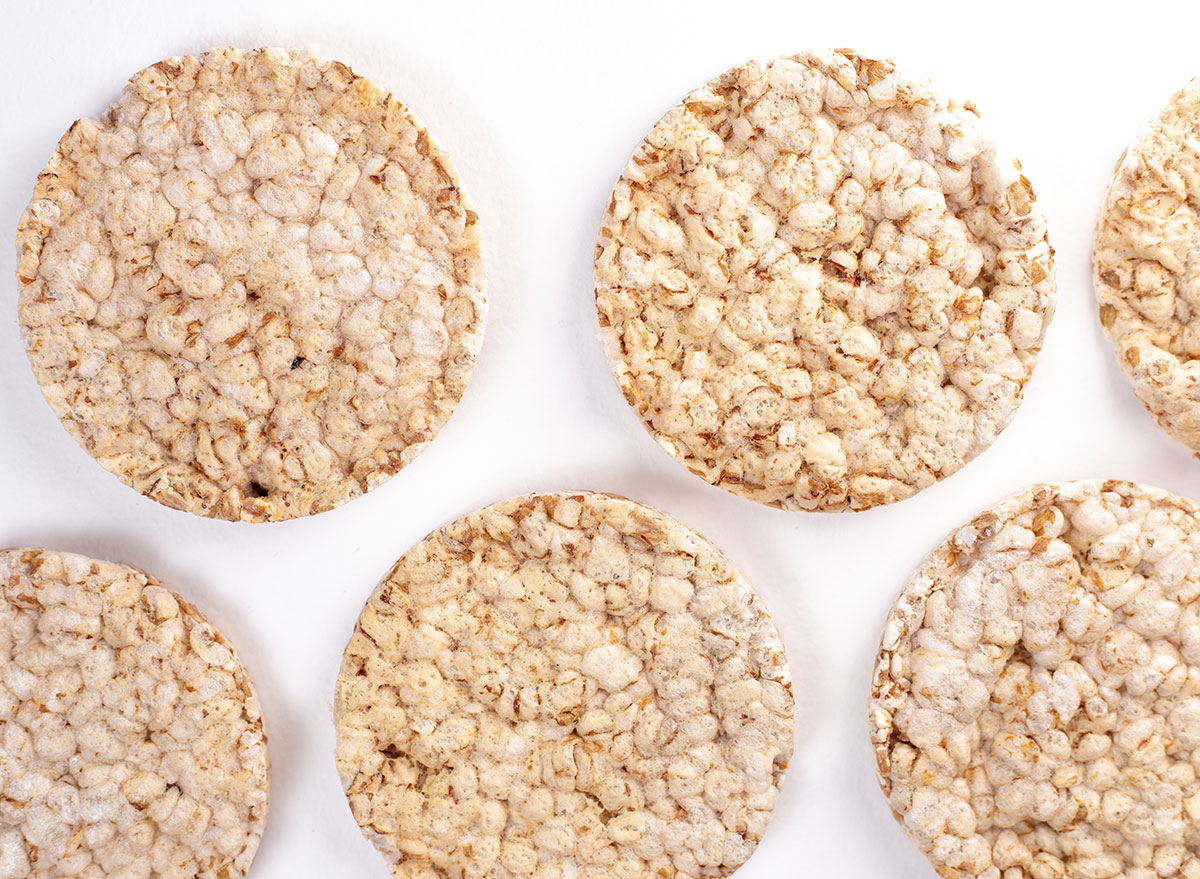
Think snacking on a 30-calorie rice cake is considered the pinnacle of health? Think again! While one rice cake may seem like the perfect low-calorie snack, in reality, that snack isn’t doing anything for your body.
“Rice cakes can be a good source of fiber and whole grains, but eating them by themselves will leave you hungry pretty quickly,” Dr. Rachel Paul, PhD, RD from CollegeNutritionist.com. “Pair them with a protein or fat source, like avocado & fried eggs, or peanut butter and sliced banana to keep you full.”
Reaching for another rice cake, and another rice cake, isn’t the solution to feeling full. The solution is pairing your meals with other filling nutrients like healthy fats and proteins so you don’t overeat on those low-calorie foods, like rice cakes or other non-filling snacks.
“Sugar free” foods
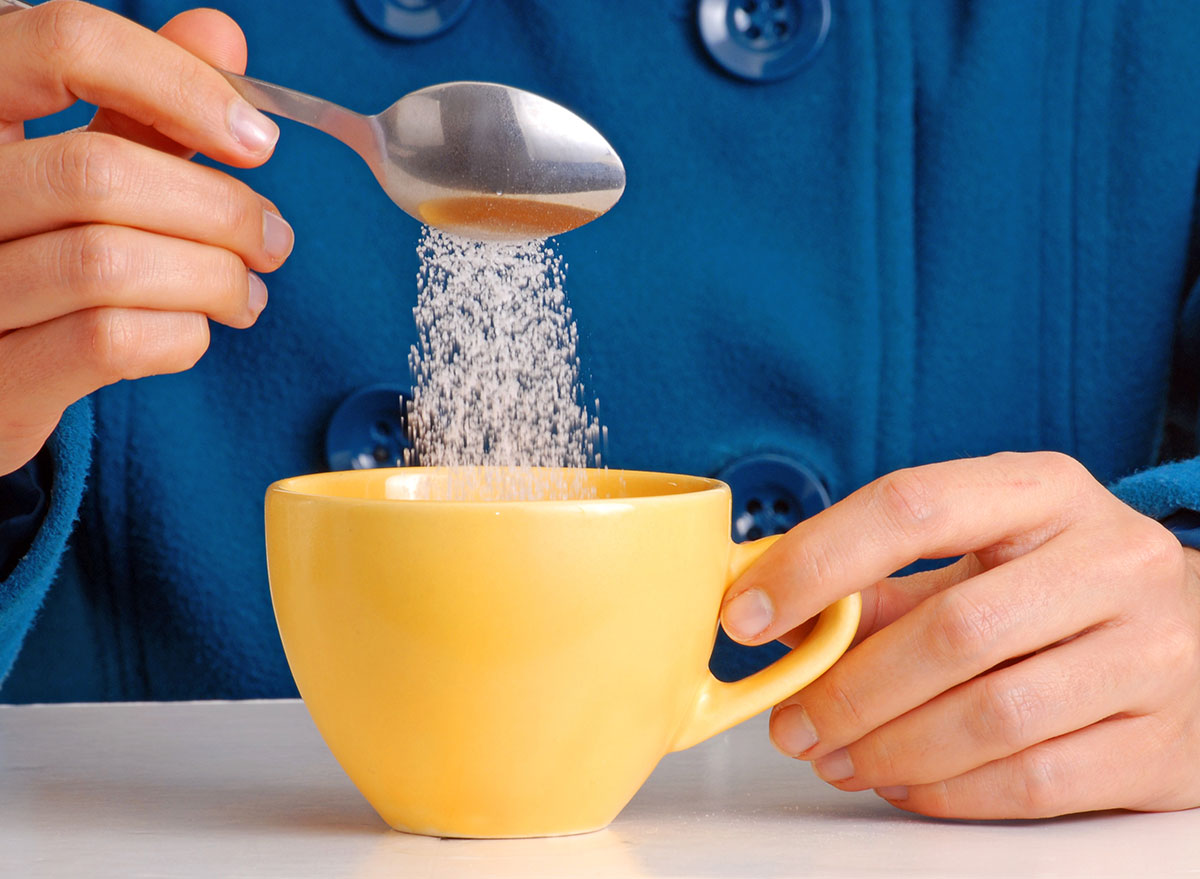
“Many times companies will replace sugar with sweeteners or increased saturated fat in order to ensure the desired flavor,” says Ricci-Lee Hotz, MS, RDN at A Taste of Health and Expert at Testing,com. “Just because an item is claimed to be ‘sugar-free‘ it does not mean it is healthy. Some sweeteners have even been shown to increase risk of developing type 2 diabetes or even increase the risk of certain cancers when consumed in excess.”
Here’s why “Sugar-Free” Foods Aren’t What They Claim.
Sodium-rich foods.
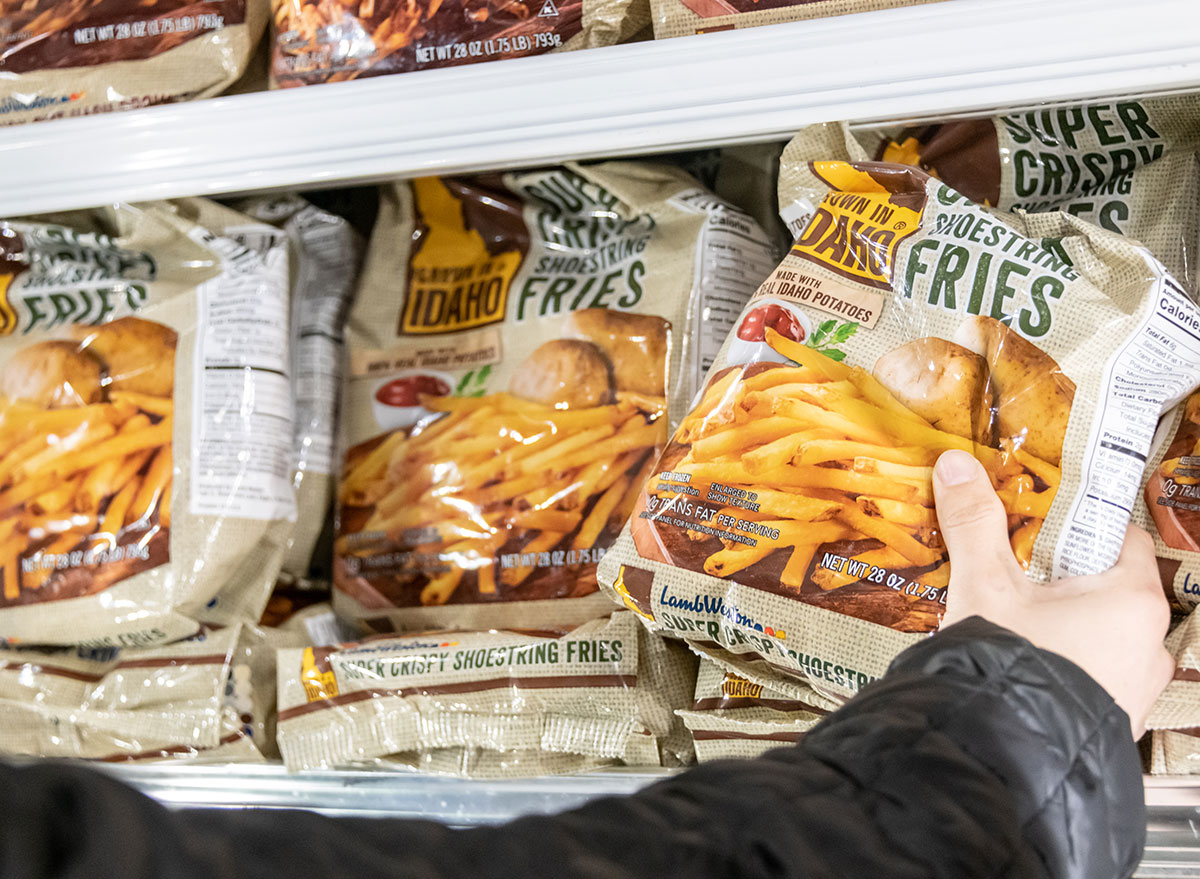
“It is important if you are going to choose a pre-prepared meal to find lower sodium options as current recommendations suggestion a maximum of 2300 milligrams of sodium per day (approximately 1 tablespoon) and many frozen or pre-prepared meals have upward of 800 to 1200 milligrams of sodium in a single meal,” says Hotz. “If sodium is consumed in excess, this can increase your risk of high blood pressure.”
Get even more healthy tips straight to your inbox by signing up for our newsletter!

